Boko Haram fighters attacked a military base in remote northeast Nigeria, setting fire to shelters for those made homeless by the conflict, military and humanitarian sources told AFP on Tuesday, January 15.
The attack in Rann, some 175 km (110 miles) northeast of the Borno state capital, Maiduguri, began late on Monday afternoon and forced civilians to flee.
It followed a pattern by the Islamic State West Africa Province faction of Boko Haram that has called into question government claims the group is virtually defeated.
A similar attempt was made to take over a military base in Magumeri, 50 km northwest of Maiduguri, on Sunday, a local community leader said.
A military source in the Borno state capital, Maiduguri, said the attack began at about 5:20 p.m. (1620 GMT) on Monday.
“The terrorists took over a military position in Rann following heavy fighting,” he said on condition of anonymity.
Nigerian government forces fled during the attack, Reuters reported security sources as saying.
According to Reuters’ sources, residents of the town also fled and the militants set buildings on fire.
Poor visibility because of seasonal Harmattan winds hampered the deployment of air force jets, and troops were forced to withdraw, he added.
Rann has been repeatedly attacked in the nine-year conflict. The town currently hosts some 35,000 internally displaced people, according to the International Organization for Migration.
On December 6, Boko Haram fighters attacked a military base in Rann, but it was unclear which faction they belonged to. After an hour’s heavy fighting, the militants were pushed out with aerial support, one security source told AFP.
Camps torched
“The terrorists went about setting fire to camps and shelters of IDPs. Most people have fled the town into the bush but we have no details of casualties at the moment.”
An aid worker in Maiduguri added: “We have been in touch with some aid workers in Rann, who said the town had been taken by ISWA and camps were being burned.
“They had to flee towards Bulale on the Cameroon side of the border. The details are sketchy.”
Split in Boko Haram factions
Boko Haram split into two factions in mid-2016 over ideological differences. One is led by Abu Mus’ab Al-Barnawi and largely focuses on attacking military and government targets, while the other, led by Abubakar Shekau, is notorious for suicide bombings and indiscriminate killings of civilians.
Shekau has pledged allegiance to ISIS leader Abu Bakr Al-Baghdadi, but ISIS central gave its formal backing to the Barnawi faction, which is known as Islamic State West Africa province.
ISWA has lately intensified its armed campaign, launching a number of major assaults on military targets in Borno and neighboring Yobe state amid signs of a takeover by more hardline leaders.
There have been dozens of attacks on military bases since July, most of which have been blamed on ISWA, or claimed by ISIS as ISWA attacks.
Nigerian Army returns to Baga
On January 10, Nigerian troops returned to the strategic town of Baga on the shores of Lake Chad, after Boko Haram attacks forced tens of thousands to flee.
Fighters from the Islamic State West Africa Province of Boko Haram attacked three military bases in and around Baga late last month.
The United Nations has said more than 30,000 people had since sought refuge in the garrison town of Monguno and the Borno state capital, Maiduguri, as the military prepared to conduct operations in the area.
Some buildings, including the homes of local politicians, chiefs and community leaders, were burnt down in Baga and neighboring Doron Baga.
Brigadier General Sani Kukasheka Usman, Director of Army public relations later said in a statement published on Facebook that special forces had begun clearance operations on December 28.
“[t]he Special Forces lost one officer and a soldier, while 5 other soldiers sustained injuries,” in Baga, Usman said.
He said that troops were “consolidating and clearing vestiges of the terrorists” in Borno state, with “special emphasis on the Lake Chad region.”
Nigeria’s President Muhammadu Buhari said in December 2015 that Boko Haram were “technically defeated” after a sustained counter-insurgency.
But on January 9 he acknowledged setbacks in the fight-back, including “battle fatigue” among soldiers from a wave of guerrilla style hit-and-run tactics and suicide bombings.
Buhari was elected in 2015 on a promise to end the conflict and security has again become an election issue as he seeks a second term in the presidential election on February 16. National Assembly elections will be held the same day, while regional polls are set for March 2.


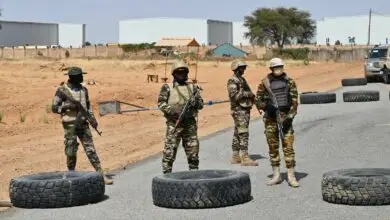
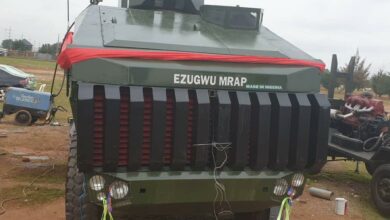

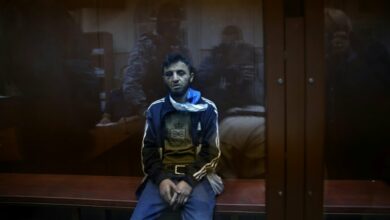
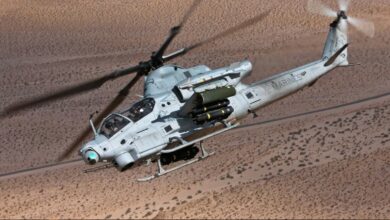

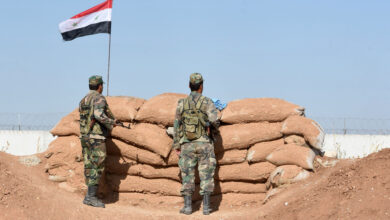
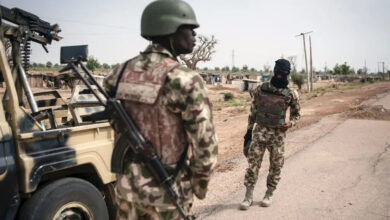
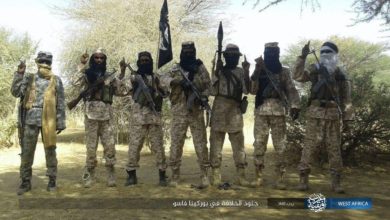

2 Comments